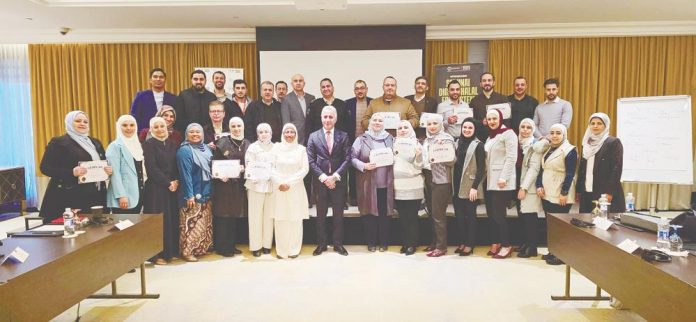PETALING JAYA: Jordan has taken a significant step towards enhancing its halal ecosystem by partnering with Malaysia-based halal digital technology leader Serunai Commerce under the Reverse Linkage modality of the Islamic Development Bank (IsDB).
This collaboration was conducted through an 11-day comprehensive Diagnostic Mission on Halal Ecosystem Development, marking a crucial phase in assessing Jordan’s existing capacities and formulating strategic enhancements to its halal certification processes.
The diagnostic mission, led by IsDB and Serunai Commerce in collaboration with the Ministry of Planning and International Cooperation (MoPIC), involved extensive engagements with key Jordanian ministries and regulatory bodies.
These included the Jordan Standards and Metrology Organisation (JSMO), the Ministry of Industry, Trade & Supply (MIT), the Ministry of Agriculture (MoA), the Jordan Food and Drug Administration (JFDA), Jordan Customs, and the Municipality of Greater Amman, Iftaa’ Department, Jordan Chambers of Industry (JCI) and the Embassy of Malaysia in Amman, Jordan. The high-level discussions centred on identifying current challenges, capacity gaps, and opportunities for Jordan to strengthen its position in the global halal economy.
Beyond ministerial meetings, a workshop coordinated by the IsDB and MoPIC delivered by Serunai Commerce provided a platform to exchange knowledge, discuss capacity building strategies, and explore innovative solutions to improve Jordan’s halal certification processes. The delegation also visited prominent manufacturing facilities such as Siniora Food Industries and BioEnergyTech to gain insights into Jordan’s halal production capabilities and explore avenues for enhancement in line with international best practices.
IsDB reverse linkage lead technical specialist Aminuddin Mat Ariff said “A diagnostic mission is a vital step in the reverse linkage process, as it enables us to thoroughly assess the existing capacities, identify gaps, and understand the needs of the recipient country, in this case Jordan – as it works towards developing a comprehensive and sustainable halal ecosystem. This initiative embodies the essence of South-South Cooperation, fostering expertise exchange and innovative solutions to drive economic growth and institutional strengthening.”
The delegation from Serunai Commerce represented by its director of international partnership Intan Suriya emphasised the importance of capacity building in aligning Jordan’s halal certification standards with international best practices. They highlighted how this initiative would empower local agencies like JSMO and JFDA to streamline their processes and support local businesses in accessing global markets.
Representatives from MoPIC and JSMO reaffirmed Jordan’s commitment to advancing its halal industry, highlighting the government’s efforts in boosting regulatory frameworks and supporting local businesses in accessing international markets. The mission featured hands-on sessions, capacity gap analyses, and strategic discussions to develop an actionable roadmap for Jordan’s halal industry expansion.
“Jordan is dedicated to enhancing its halal sector, and this collaboration with Serunai Commerce and IsDB is a critical step in achieving our national objectives,” said MoPIC Arab and Islamic relations section head Malek Breazat.
He added that with Malaysia’s extensive experience in halal certification and digital innovation, they aim to fortify their halal certification ecosystem, ensuring global compliance and boosting economic opportunities for local businesses.
This diagnostic mission marks the beginning of a long-term strategic partnership between Jordan and Malaysia. Moving forward, the collaboration will focus on implementing digital halal certification modules, harmonising local standards with international requirements, and unlocking new trade and investment opportunities to position Jordan as a key player in the global halal economy.








